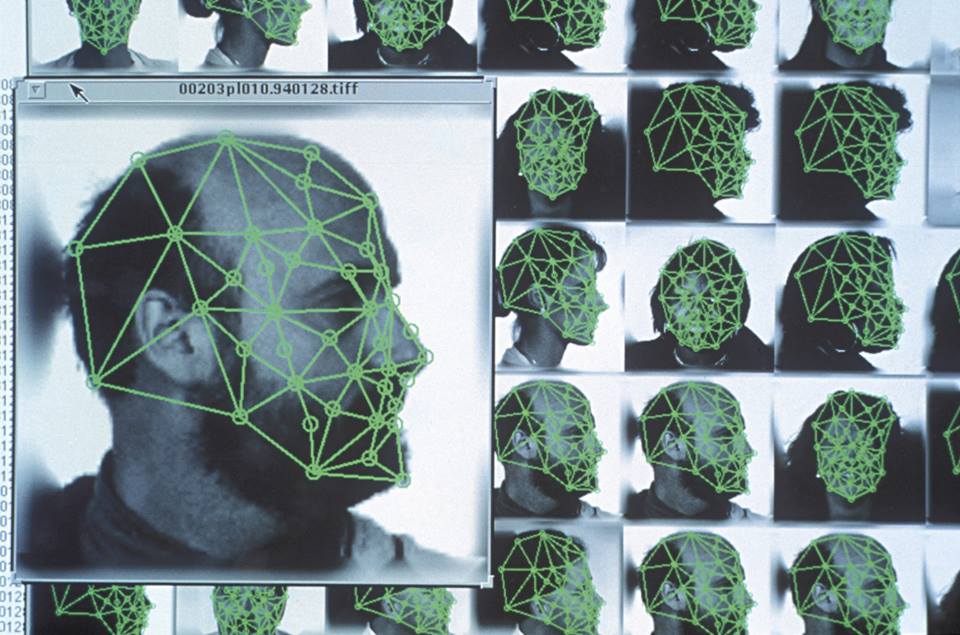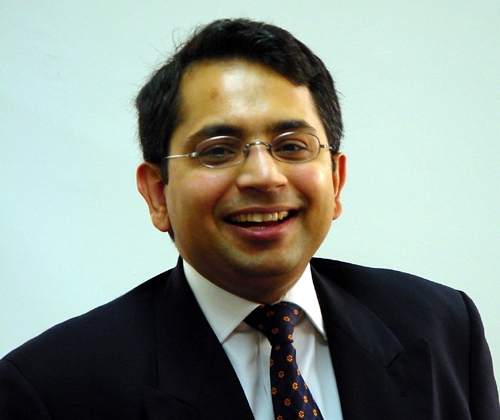Quantum Computing Arrives Early? What Does The $50 Million Investment In Cambridge Quantum Computing Really Mean?
London, UK - 31st August 2015, 08:00 GMT
Grupo Arcano's Chilean founder -- Alberto Chang Rajii -- is extraordinary at spotting high-tech opportunities at an early stage. He is a visionary investor who saw the potential in Google, Uber and Snapchat long before the world did.
From our shared taxi ride to the airport in Hamburg -- after two days together at a global summit -- to the meeting in London at our sky-light base on level 43 in Canary Wharf to discuss Quantum Technologies 2.0 (QT2), all along it has been clear that Alberto C-R is looking to solve complex problems for humanity by investing in the future and we share a deep and mutual interest in intractable non-trivial problem solving via Quantum Computing (QC) and classical computing combined.
 Cambridge Quantum Computing Ltd (CQCL)
Cambridge Quantum Computing Ltd (CQCL)
As a part-time world travelling inhabitant of Sir Richard Branson's Necker and Mosquito islands in the British Virgin Islands, Alberto C-R speaks often about his shared interest in Quantum Computing and QT2 applications such as advanced Machine Learning and Artificial Intelligence with Larry Page and Sergey Brin -- the founders of Google -- and Quantum Cryptography (Q-Crypto) & ultra secure payment multi-satellite networks with Elon Musk, the founder of Tesla, Paypal & SpaceX. In this regard, it is no surprise to note the first round $50 million investment by Grupo Arcano in the start-up Cambridge Quantum Computing Ltd (CQCL). The following and constellation of Grupo Arcano is such that more players will follow Alberto C-R.
Cambridge Quantum Computing Ltd (CQCL) has developed a new OS designed to run the quantum computers that will shape our future. The new OS, which is called t|ket>, has been facilitated by CQCL's own proprietary custom designed high-speed super computer, which allows the company to accurately mimic how a quantum processor will work. The Cambridge firm believes that the software will aid the commercialisation of the emerging technology by facilitating users in controlling what operations a Quantum Computer can perform. As indeed discussed at length with Alberto C-R, we believe at Quantum Innovation Labs (http://QiLabs.net) that the following 10 interlocking areas are critical to Quantum Technologies 2.0 or QT2 applications going forwards:
1. Q-bit mathematics
2. Q-bit algorithms & software models
3. Quantum clocks
4. Quantum sensors
5. Quantum precision Components
6. Quantum cryptography
7. Quantum telecommunications
8. Quantum computing and simulation
9. Quantum healthcare
10. Quantum energy devices
The CQCL investment falls under the aegis of points 1, 2, 6 and 8. Next-generation Quantum Computers can perform large-scale, simultaneous computation tasks, much like the human brain, and many believe they hold the key to managing the big data tasks of our future. Even though it can be extremely expensive, Quantum computing has been coming on leaps and bounds in the past 24 months, and the speed it completes certain complex tasks when compared to classical computers is one of the biggest advantages it brings. CQCL's earlier information release in April/May 2015 came in the same week that IBM brought us even closer to a working quantum computer by accomplishing simultaneous error detection of two quantum errors.
"CQCL is at the forefront of developing an operating system that will allow users to harness the joint power of classical super computers alongside quantum computers. The development of t|ket> is a major milestone," according to a statement from the company. "Quantum computing will be a reality much earlier than originally anticipated. It will have profound and far-reaching effects on a vast number of aspects of our daily lives."
“Quantum Computing has developed rapidly in the past 24 months, and we intend to build on our existing position by accelerating the further development of t|ket> -- our operating system -- as well as enhancing our activity around platforms that can be used to create a quantum processor,” said a spokesperson from Cambridge Quantum Computing Limited.
Alongside the Quantum OS, CQCL has also unveiled a design that makes its quantum computer highly scalable thus bringing it closer to becoming a realistic proposition. The company, mainly made up of mathematicians from the University of Cambridge, is focusing on developing algorithms for applications to drive these machines.
"We are excited and very pleased to become investors into Cambridge Quantum Computing," Grupo Arcano stated. "In agreeing to invest up to $50m in the course of the next two to three years, we will be supporting cutting edge development in a sector that has the potential for real global impact."
Governments, technology companies and research organisations are currently developing Quantum Technologies 2.0 (QT2) in the belief that it could provide key components for the future of computing, capable of satisfying the world's ever-growing technological needs particularly in regard to big data manipulation. The CIA, NSA, NASA, Google, IBM, Microsoft and Alibaba have all set up labs to explore the nascent technology, while earlier this year the UK government outlined a GBP 270m strategy into quantum technology growth through the UK National Quantum Technology programme.
[STOPS]
Source: QiLabs.net 1. Funding Form 2. Involvement Form 3. iQ:Ei Club
What are your thoughts, observations and views? We are keen to listen and to learn.
Best wishes

D K Matai
ATCA: The Asymmetric Threats
Contingency Alliance is a philanthropic expert initiative founded
in 2001 to resolve complex global challenges through collective
Socratic dialogue and joint executive action to build a wisdom
based global economy. Adhering to the doctrine of non-violence,
ATCA addresses asymmetric threats and social opportunities arising
from climate chaos and the environment; radical poverty and microfinance;
geo-politics and energy; organised crime & extremism; advanced
technologies -- bio, info, nano, robo & AI; demographic skews
and resource shortages; pandemics; financial systems and systemic
risk; as well as transhumanism and ethics. Present membership
of ATCA is by invitation only and has over 5,000 distinguished
members from over 120 countries: including 1,000 Parliamentarians;
1,500 Chairmen and CEOs of corporations; 1,000 Heads of NGOs;
750 Directors at Academic Centres of Excellence; 500 Inventors
and Original thinkers; as well as 250 Editors-in-Chief of major
media.
The Philanthropia, founded in 2005, brings together over
1,000 leading individual and private philanthropists, family offices,
foundations, private banks, non-governmental organisations and
specialist advisors to address complex global challenges such
as countering climate chaos, reducing radical poverty and developing
global leadership for the younger generation through the appliance
of science and technology, leveraging acumen and finance, as well
as encouraging collaboration with a strong commitment to ethics.
Philanthropia emphasises multi-faith spiritual values: introspection,
healthy living and ecology. Philanthropia Targets: Countering
climate chaos and carbon neutrality; Eliminating radical poverty
-- through micro-credit schemes, empowerment of women and more
responsible capitalism; Leadership for the Younger Generation;
and Corporate and social responsibility.

